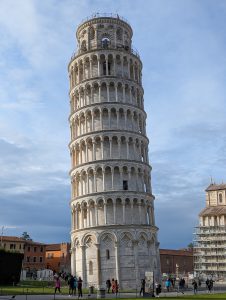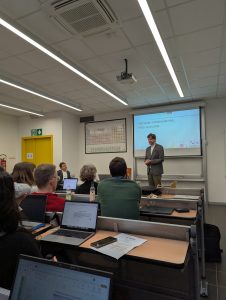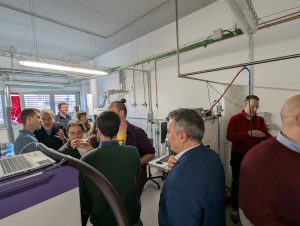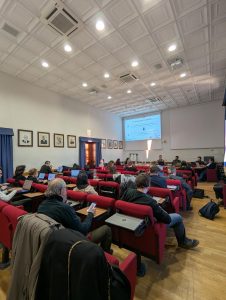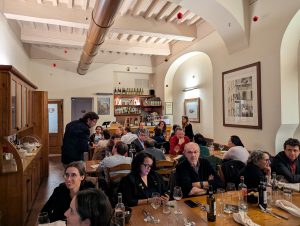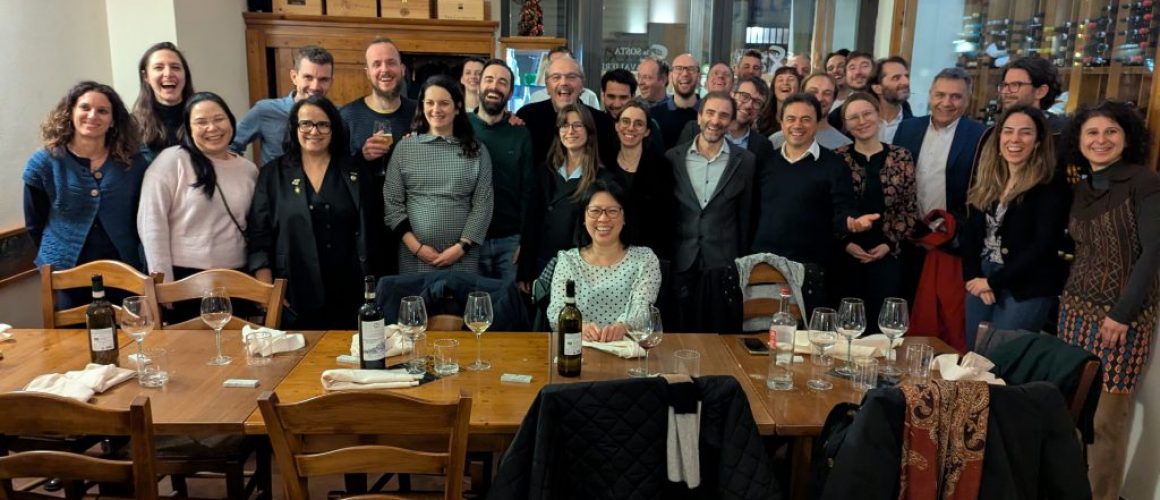Successful Final Review Meeting of the POTION Project in Pisa
After six incredible years of collaboration, innovation, and hard work, the POTION project reached its final milestone with a successful review meeting in the beautiful city of Pisa. This event marked the end of an incredible journey shared by all partners, guided by the exceptional coordination of Pasquale Scilingo and Alberto Greco from University of Pisa, whose leadership played a key role in overcoming challenges and steering the project to success.
The final review meeting brought together the project team, the project officer Carlos Casorran Amilburu and the reviewers—Moustafa Bensafi, Laura Lopez-Mascaraque and Veronika Schoepf—who traveled to Pisa to evaluate the outcomes of the project. Their positive feedback and thoughtful input reaffirmed the value of the work achieved throughout the project’s duration. We are immensely grateful for their support and constructive contributions, which will inspire future endeavors beyond the project’s lifetime.
The POTION project has been a shining example of what can be achieved through strong collaboration and dedication. One of the defining aspects of the POTION project was its ability to adapt and thrive despite the challenges brought on by the COVID-19 pandemic. Like many global projects, we faced unexpected disruptions that prevented sweat sample collection and the clinical trials to move forward, but through resilience, the consortium ensure that the key objectives were met and delivered. Therefore, we extend our heartfelt thanks to all consortium members for their commitment, expertise, and teamwork, which made this project a resounding success.
Over the past six years, the consortium worked tirelessly to achieve our goals, and the results speak to the strength of this partnership. Below are some of our key achievements:
Highlights of Key achievements:
- Closed-loop POTION Delivery System (PDS):
Developed a system that combines IoT technologies, real-time data processing, and VR integration. The PDS is an adaptive odor delivery system, precisely controlled based on the user’s biometric and emotional state. This innovation enhances user experiences in multi-sensory studies and optimizes dose-response of odors. - The Cyberball Game VR Application:
A virtual reality platform tailored to investigate social exclusion dynamics. Combined with the PDS for controlled chemosignal administration, this novel setup provides a groundbreaking approach to studying human social interactions with applications in behavioral research. - Real-Time Chemosignal Monitoring System:
Created a flexible, real-time monitoring setup for human chemosignals with simultaneous sweat sample collection. By integrating VR and physiological sensors, this system enables the continuous and real-time study of chemosignals under controlled emotional stimuli for the first time. - Patent-Pending Technology for VOC Analysis:
Developed an innovative technology enabling single-step identification, selection, and extraction of volatile organic compounds (VOCs) from complex mixtures. This solution has wide-ranging applications across gas chromatography industries, including consumer products, pharmaceuticals, and fragrance and flavor development.
Looking Back, Moving Forward
As we close this chapter, we celebrate not only the achievements of the POTION project but also the friendships and collaborations that have grown along the way. Pisa served as the perfect setting for this final review, a moment to reflect on the incredible progress we made and to look ahead to the opportunities that will arise from our work.
Thank you once again to the reviewers, the entire consortium, and everyone who contributed to making the POTION project a success. While the project may have concluded, its impact will continue to live on.
Here’s to six years of innovation, collaboration, and success—POTION has been an unforgettable journey! 🎉
